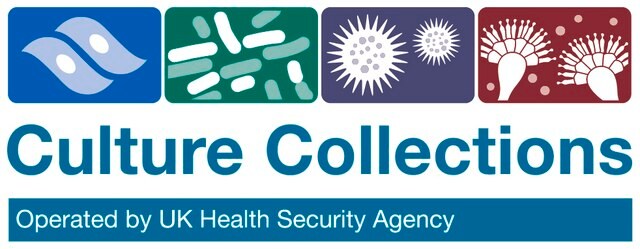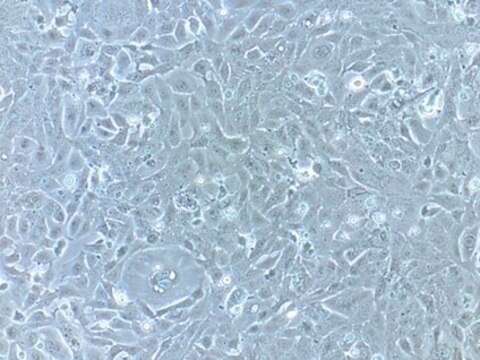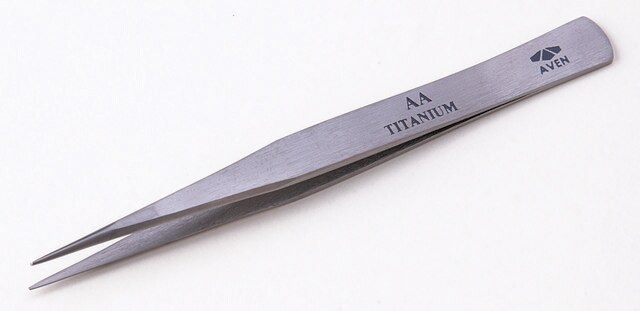ES-R1-ECFP CK8/ECFP
07072005, mouse embryo. Monolayer of spheroidal cells on feeder layer of PMEFs.
Synonim(y):
CK8/ECFP, ES-R 1, ES-R-1, ESR-1, ESR1
About This Item
Polecane produkty
Nazwa produktu
ES-R1-ECFP CK8/ECFP, 07072005
pochodzenie biologiczne
mouse embryo
tryb wzrostu
Adherent
kariotyp
Not specified
morfologia
Adherent monolayer of spheroidal cells on feeder layer of mouse primary embryonic fibroblasts
produkty
Not specified
receptory
Not specified
metody
cell culture | mammalian: suitable
Warunki transportu
dry ice
Szukasz podobnych produktów? Odwiedź Przewodnik dotyczący porównywania produktów
Pochodzenie linii komórkowej
Opis linii komórkowej
pożywka hodowlana
Rutyna subkultury
Porcine gelatine (Sigma product number G1890) is dissolved in sterile water (0.5 g/500ml) at 56 °C. The 0.1% solution is sterilized by filtration (0.22 μm). Add 0.1% gelatine to plastic ware to cover bottom, and incubate for 20 minutes at room temperature (RT). Remove gelatine, wash with PBS once and replace with appropriate culture medium. The flask/dish must not be allowed to dry out.
Feeder layers are prepared on the gelatinized flasks at least 24 hours in advance of being required. An ampoule is thawed in 37 °C water bath and the contents quickly transferred to a 15 ml centrifuge tube. MEF medium is added drop wise to 5 ml. Cells are centrifuged at 150 x g for 5 minutes at RT. Cells are resuspended in 5 ml of MEF medium. Cells are counted and added to flasks containing the correct medium at 1-3 x 104 cells/cm2.
An ampoule of ES cells is thawed in 37 °C water bath and the contents quickly transferred to a 15 ml centrifuge tube. KSR medium is added drop wise to 5 ml. Cells are centrifuged at 150 x g for 5 minutes. Cells are resuspended in 5 ml of KSR medium. The prepared feeder flask is washed once with PBS and KSR medium added. ES cells should be plated at 4-5 x 104 cells/cm2. Cultures must be incubated in a humidified 5% CO2/95% air incubator at 37 °C. A 100% media change must be performed every day and cells passaged every 2-3 days. Colonies must not be allowed to touch each other as overgrowth will result in differentiation.
Inne uwagi
Oświadczenie o zrzeczeniu się odpowiedzialności
Wybierz jedną z najnowszych wersji:
Certyfikaty analizy (CoA)
Przepraszamy, ale COA dla tego produktu nie jest aktualnie dostępny online.
Proszę o kontakt, jeśli potrzebna jest pomoc Obsługa Klienta
Masz już ten produkt?
Dokumenty związane z niedawno zakupionymi produktami zostały zamieszczone w Bibliotece dokumentów.
Nasz zespół naukowców ma doświadczenie we wszystkich obszarach badań, w tym w naukach przyrodniczych, materiałoznawstwie, syntezie chemicznej, chromatografii, analityce i wielu innych dziedzinach.
Skontaktuj się z zespołem ds. pomocy technicznej







